

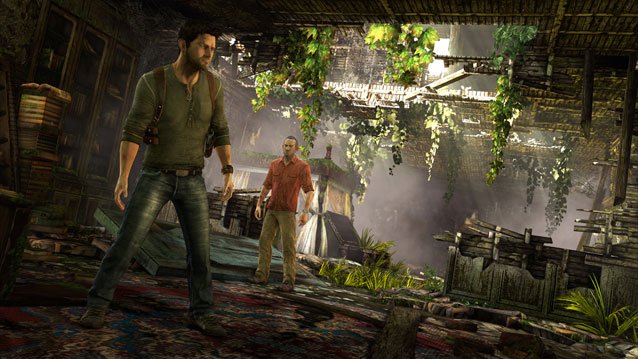
Welcome to another edition of The Round Table, a series wherein we have back-and-forth discussions on upcoming and newly released games, sharing our expectations and opinions. I'm Chris, and with me once again is Ian, and today we're going to talk about our journey through Uncharted 3. We've both just finished it moments ago and while it's still fresh in our minds we're eager to share our opinions.
Chris: The game has already been out for some days now, and if you've been reading any of the articles online you're likely already familiar with its positive reception. I won't be disagreeing with their assessment. Uncharted 3 is a great a game and an exciting and gorgeous adventure, and not many, if any, developers can do what Naughty Dog has accomplished. But it's not without some large problems, and once the final curtain fell I couldn't help but feel it did not live up to its predecessor.
Despite those feelings, however, it's still a game I recommend to existing fans and those who haven't yet taken the dive into the Uncharted universe. What is your general consensus, Ian, and would you recommend the game to old and new players alike?
Ian: I would definitely recommend the game to new players and old players alike. To players already familiar with the series, you'll want get another taste of the Uncharted experience and you can't help but yourself to see where the story is going. But if you're expecting something new, something improved, Uncharted 3 doesn't deliver on all fronts. It's a highly polished game and as Chris said, it's very beautiful, but it's not without a slew of problems. I would even hazard to call it somewhat overrated, given the recent reviews in the gaming press.
I'd first like to start by saying that the gameplay is the game's biggest problem. I know, it's funny—it being a game and all. But it's as if the game wishes it were a movie, and feels obligated somehow to include unnecessary gameplay segments just to keep up the ruse. Naughty Dog is obviously very talented, and they are more than capable of telling a good story, but they haven't yet figured out how to marry their cinematic talents with the rest of the game.
Certain parts of the game feel as if they were simply tacked to fill out the space between the story.
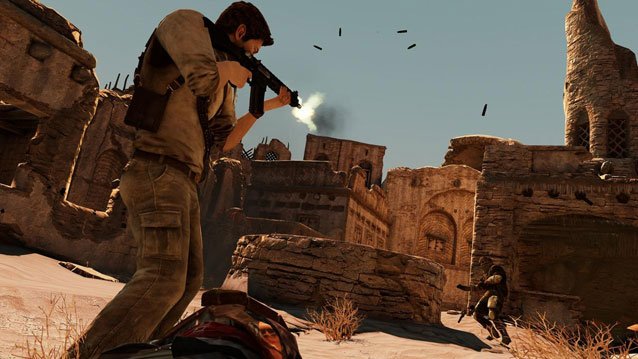
Chris: There are certainly issues with the gameplay, but I didn't think it was the game's biggest problem. Those issues left me frustrated, even angry to the point of walking way from my television during at least four specific firefights, but I can move past a lot of those shortcomings if the story and the characters are done well. They are what I ultimately play the Uncharted games for, and they are what make me love, a word I don't often use with video games, this series.
Nathan Drake and friends feel real, thanks in no small part to the freedom given to the actors to craft their characters. Their banter comes across as genuine and believable. And the world itself is no different. Those elements are still present in Uncharted 3. In fact, while exploring one ancient city I couldn't help but stare in wonder at everything around me, amazed that people built and once lived in that elaborate and beautiful place now desolate and dead. Then I shook my head, reminding myself that this was just a video game. The Uncharted games can suck you into the experience like few others can.
But those elements aren't perfect in Uncharted 3, either. While I finished Uncharted 2 with a massive grin, feeling satisfied with the characters, their growth and their journey, and the game's exciting buildup and climax, that satisfaction wasn't quite so strong in this third game.
We'll expand on that further in the discussion. For now, let's continue discussing the gameplay.
Ian: The arenas were my biggest problem with it. They were present in previous games, but they weren't as obvious and the combat flowed better. This time around, I could just tell when combat was ahead due to the presence of half-walls, tables and other waist-height objects strategically scattered throughout an otherwise empty area.
It would've been something to look forward to had the armored enemies not given me as much trouble as they did. The only way to kill those big bastards was to either pump them full of lead or shoot them in the head – an otherwise simple feat were it not for the game's imprecise aiming and sensitivity issues. The reticule was either too fast, or too slow, making aiming an exercise in tedium as I tried to line up my headshots or lead moving enemies with a fully automatic rifle—a problem exacerbated by the lack of aiming assistance, even on Medium difficulty.
Chris: It was more than just fighting those well armored enemies. The previous games largely had the same general enemy types—snipers, soldiers with riot shields or ballistic vests and helmets, etc.—but the curve in which they were introduced was much smoother. The engagements were an honest, fun challenge to overcome. Those same engagements in Uncharted 3, however, are replaced with a veritable swarm.
Snipers, men toting rocket-propelled grenades, machine gun emplacements, enemies carrying riot shields, the aforementioned heavily armored and armed soldiers Ian mentioned, as well an army of standard goons all inhabit the same space at the same time. No matter which direction I would go, no matter what cover I would seek, I was constantly being displaced with few options that resulted in successful escape. Frustration was compounded when several of those “battle arenas” offered very little mobility or cover due to their relatively small size; and the aiming, which is currently a focus of common complaint, was sluggish and heavy.
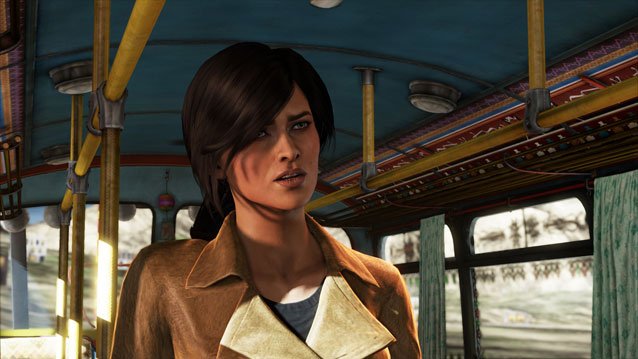
Ian: And speaking of the "battle arenas," every one of them acts as filler between the linear cinematic spaces that make up most of the game's content.
The linearity in the game can be seen as a problem as it takes away the player's agency. You are quite literally unable to affect what happens in the game. Apart from pushing Nathan Drake forwards, and getting him to stand in the right spots, there's little else you need to do in any of the non-combat sections.
I should however say I have no problem with the Uncharted's approach at this, although I would like to have seen greater freedom in the areas, if only to go off the beaten path and explore some of the secrets hidden in the world.
Chris: Aside from one chase sequence in the third chapter, I have no problem with its linearity. The series has always been a linear, cinematic affair, and Naughty Dog has never failed to make those moments and scenes absolutely thrilling. The chateau, cruise ship and cargo plane levels in particular—the latter short but sweet—do not disappoint in the slightest. I'm actually surprised this is something of concern for people now.
Ian: In contrast to the third chapter chase sequence that you mentioned, the chapter in which you ride a horse and attempt to board a convoy of trucks is so much more intense. You know exactly what to do, where to go, who to shoot and when to jump. It's exhilarating and it's Uncharted 3 at its finest. You don't know exactly when it's going to end but it doesn't matter because you're having fun. It would have been nice if some of the other areas were just as well paced as this chase sequence.
Chris: Overall, though, were you happy with the action sequences?
Ian: I'm quite happy about them. They could have been improved, but overall they were okay.
Chris: As memorable as Uncharted 2's?
Ian: Yeah.
Chris: This really is an exciting game to play, but interspersed with that excitement were bouts of frustration. Let's talk a little bit about the levels that action takes place in, however. Were you impressed by the dungeons, ruins and cities you explored, climbed and fought in?
Ian: Yes. It's easily one of the most beautiful games I've ever played. The locations feel lived in, the areas plausible. The ancient mechanisms are breathtaking. They lead me to wonder, “Who built these things? And for what reason?” It's questions like these that give Uncharted's lore and backstory even more depth than many other fictional settings.

Page 1 Page 2



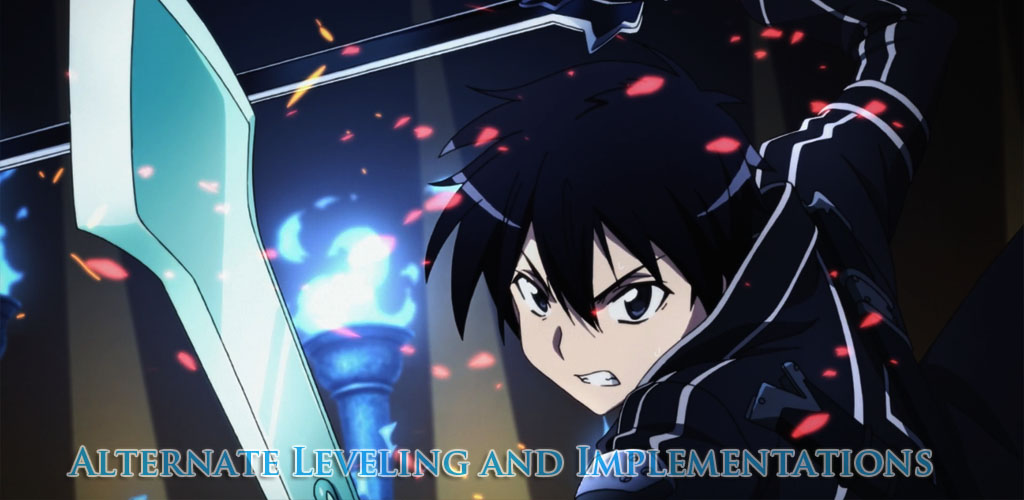
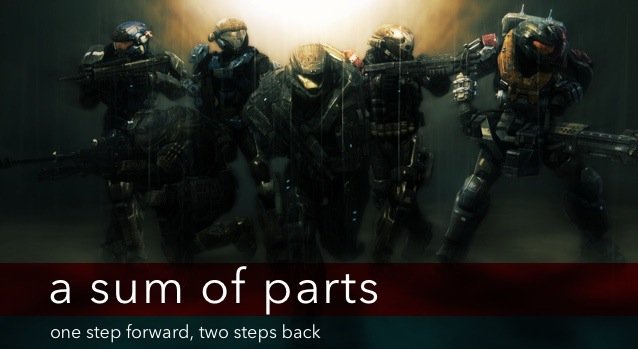 A Sum of Parts: One Step Forward, Two Steps Back
A Sum of Parts: One Step Forward, Two Steps Back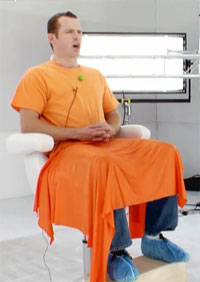 The Big Gamble: Of L.A. Noires Technology and Innovation
The Big Gamble: Of L.A. Noires Technology and Innovation How to fix PS3 Error 8013030f
How to fix PS3 Error 8013030f Just Cause 3: How to Get the DK Pistol and Fill Heads With Helium
Just Cause 3: How to Get the DK Pistol and Fill Heads With Helium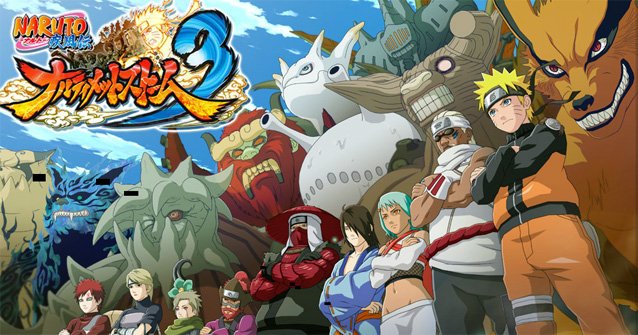 Naruto Storm 3: Complete Movesets Video Guide
Naruto Storm 3: Complete Movesets Video Guide